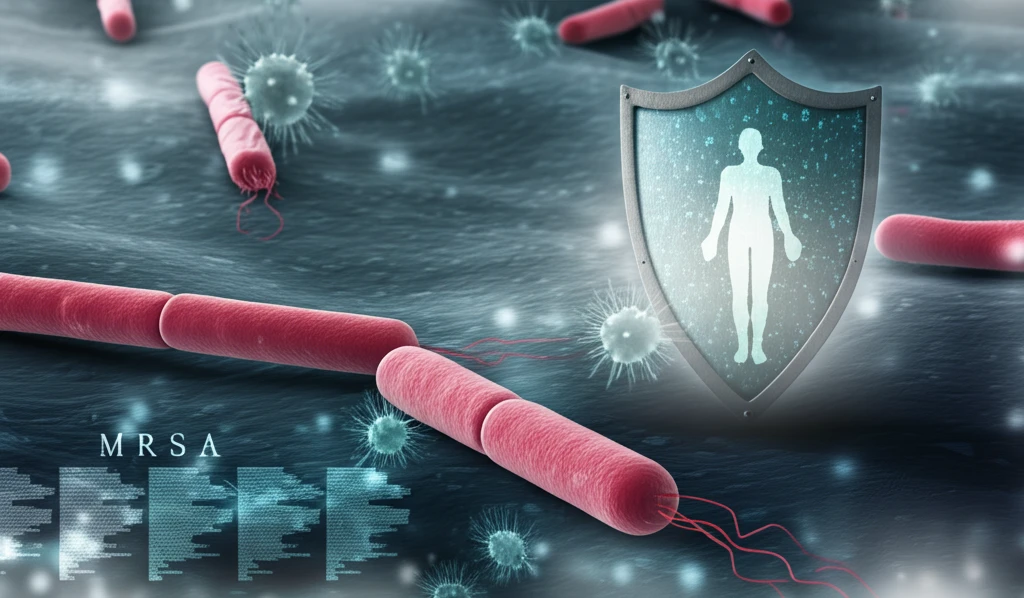
MRSA Superbug Alert: Are You at Risk? How to Protect Yourself
"Understanding the Rising Threat of Antibiotic-Resistant Infections in Your Community and Hospitals."
In recent years, the rise of antibiotic-resistant bacteria has become a significant global health challenge. Among these, Methicillin-Resistant Staphylococcus aureus, commonly known as MRSA, stands out as a particularly concerning threat. MRSA infections, once primarily confined to hospitals, are now increasingly prevalent in communities, posing risks to individuals of all ages and health statuses.
MRSA is a type of staph bacteria that has developed resistance to several antibiotics, including methicillin and other commonly used drugs. This resistance makes MRSA infections difficult to treat, leading to prolonged illness, increased healthcare costs, and, in severe cases, life-threatening complications. Understanding the nature of MRSA, its transmission pathways, and effective prevention strategies is crucial for protecting yourself and your loved ones.
This article aims to provide you with a comprehensive overview of MRSA, focusing on its emergence in both community and hospital settings. We will explore the factors contributing to antibiotic resistance, examine the differences between community-associated MRSA (CA-MRSA) and hospital-associated MRSA (HA-MRSA), and offer practical guidance on how to minimize your risk of infection. By staying informed and taking proactive measures, you can play a vital role in combating the spread of this formidable superbug.
What Makes MRSA So Dangerous?

The danger of MRSA lies primarily in its resistance to common antibiotics. This resistance is acquired through genetic mutations and the transfer of genetic material, allowing the bacteria to survive and thrive even when exposed to drugs designed to kill them. Several factors contribute to the rise and spread of antibiotic resistance:
- Overuse of Antibiotics: Taking antibiotics for viral infections (like colds or flu) or not completing the prescribed course contributes to resistance.
- Spread in Healthcare Settings: Hospitals can be breeding grounds for resistant bacteria due to the high concentration of antibiotic use and the presence of vulnerable patients.
- Community Transmission: Close contact in crowded settings, such as schools and gyms, can facilitate the spread of MRSA.
- Compromised Immune Systems: Individuals with weakened immune systems are more susceptible to MRSA infections.
Protecting Yourself and Your Community
Combating MRSA requires a multi-faceted approach involving individuals, healthcare providers, and public health organizations. By understanding the risks and taking proactive steps, you can significantly reduce your chances of contracting and spreading MRSA. Prioritize hygiene, judicious antibiotic use, and awareness to protect yourself and contribute to community health.

